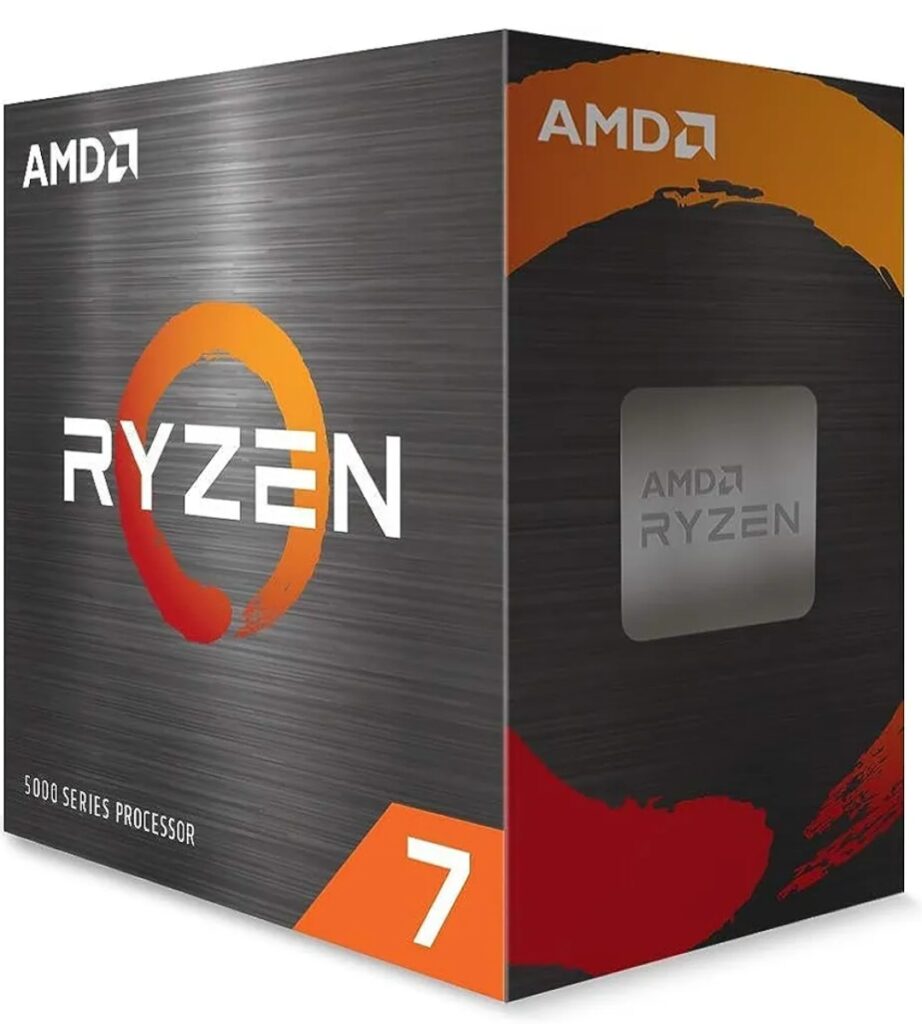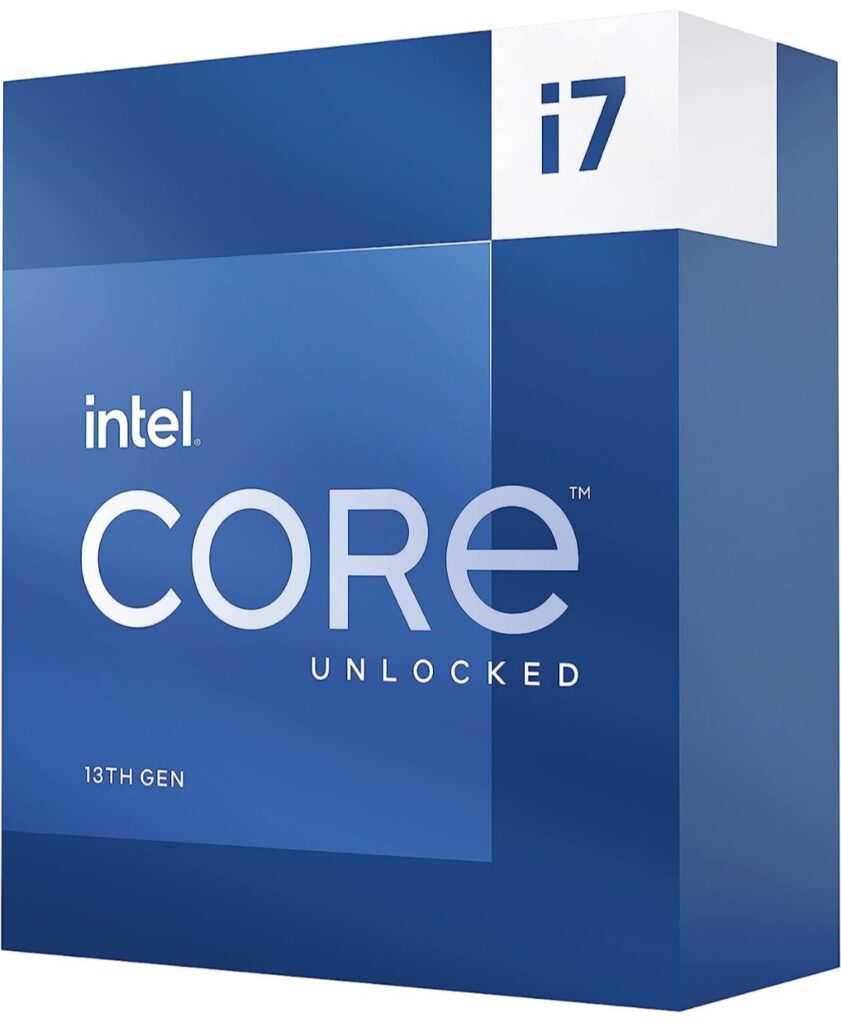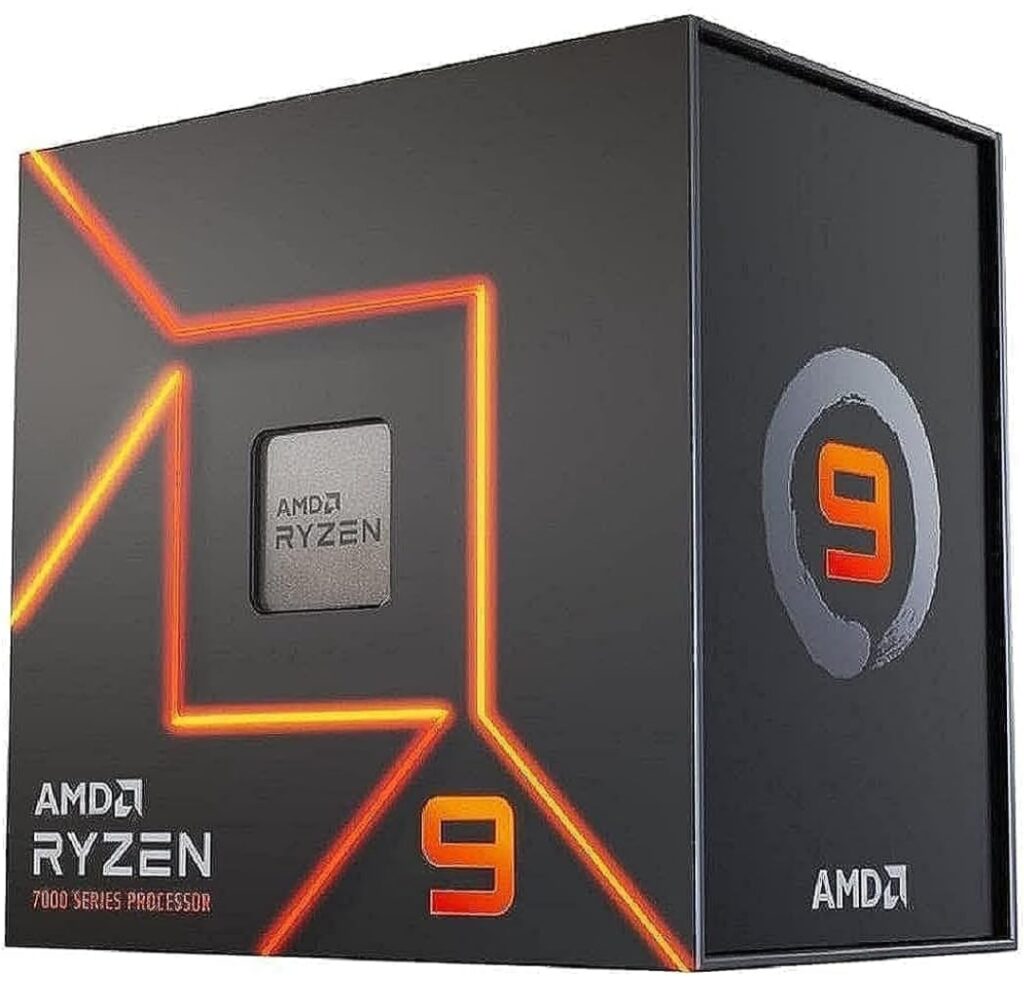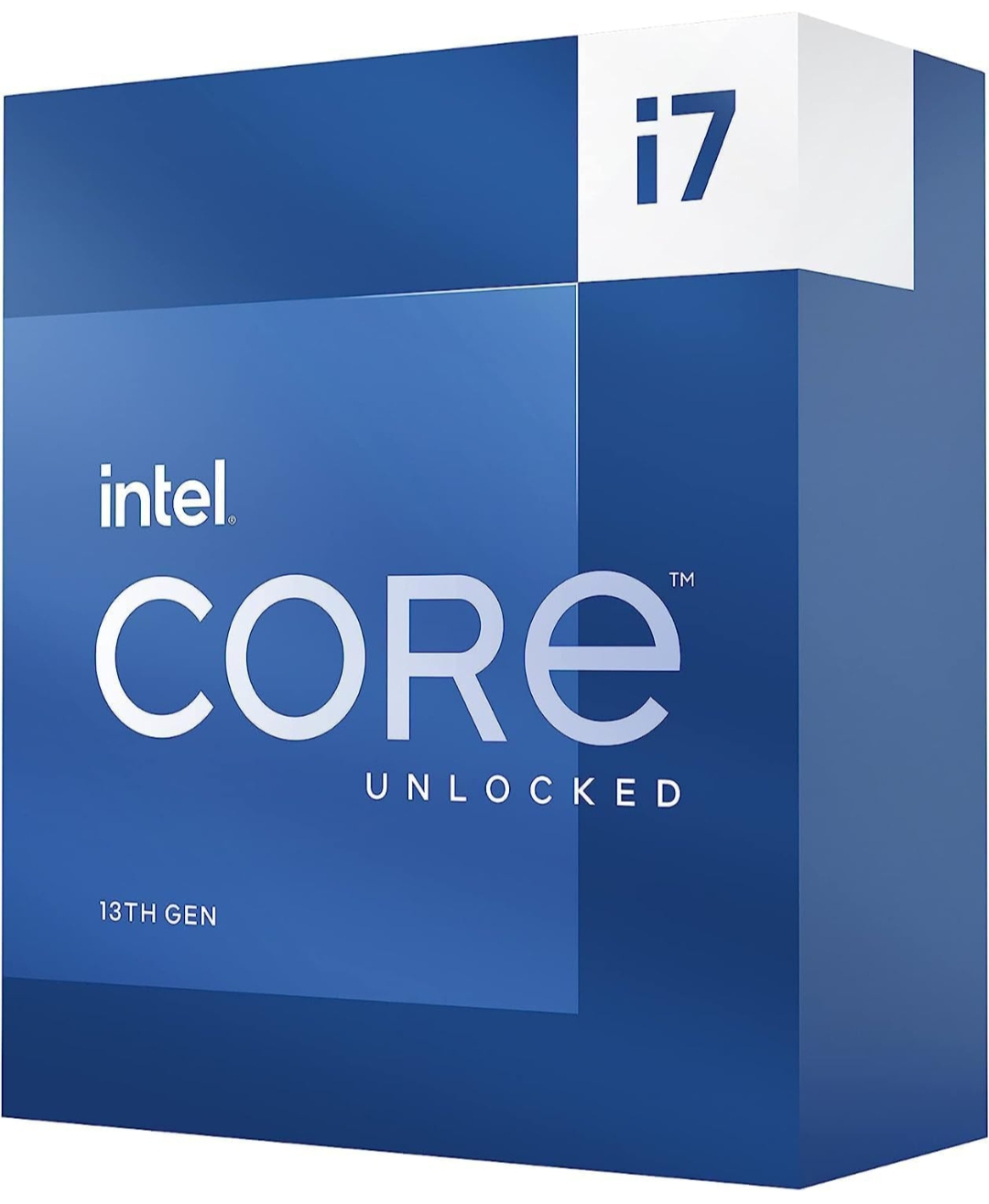The Ultimate Guide to the Best CPU for Extreme Gaming in 2024
For hardcore gamers, pushing the boundaries of graphical fidelity and frame rates is an eternal quest. But achieving peak performance relies on a meticulously crafted PC, with the central processing unit (CPU) acting as the beating heart of the system. Selecting the right CPU for extreme gaming is crucial, as it directly impacts how smoothly and vividly your favorite titles come to life.
This comprehensive guide delves into the essential factors to consider when choosing the best CPU for your extreme gaming needs. We’ll explore key specifications, delve into the latest processor architectures from AMD and Intel, and analyze their strengths and weaknesses in the high-octane world of AAA gaming.
We’ll also provide valuable insights on future-proofing your purchase, ensuring your CPU can handle the ever-evolving demands of cutting-edge games. Whether you’re a seasoned veteran or a newcomer to the realm of extreme gaming, this guide equips you with the knowledge to make an informed decision and build your dream machine.
Here’s a sneak peek at what you’ll discover:
- Core Wars: Understanding Core Count and Thread Count – We’ll unpack the difference between cores and threads and how they influence gaming performance.
- Clock Speeds Demystified: GHz and Beyond – Learn how clock speed impacts frame rates and explore the concept of turbo boost.
- The Cache Conundrum: L1, L2, and L3 Explained – We’ll shed light on the different cache levels and their role in optimizing game performance.
- Team Red vs. Team Blue: AMD Ryzen vs. Intel Core – We’ll compare the leading CPU vendors, highlighting their strengths and exploring which might be the better fit for your extreme gaming needs.
- Futureproofing Your Purchase: Considering Upgrade Paths and Compatibility – We’ll provide tips on selecting a CPU that can handle upcoming game releases and ensure compatibility with other crucial PC components.
By the end of this guide, you’ll be armed with the knowledge to confidently choose the best CPU for extreme gaming, allowing you to dominate the virtual battlefields and experience your favorite titles at their absolute finest.
1:AMD Ryzen 7 5800X3D

The AMD Ryzen 7 5800X3D: A Game-Changer for Extreme Gamers
The AMD Ryzen 7 5800X3D disrupts the high-performance gaming CPU market with its innovative approach. This 8-core, 16-thread processor boasts the revolutionary AMD 3D V-Cache technology, packing a whopping 96MB of L3 cache – a significant leap from traditional Ryzen 7 processors. But how does this translate into real-world performance, and is the 5800X3D the undisputed king for extreme gamers? Let’s delve into its features, strengths, weaknesses, and ultimately, see if it reigns supreme.
Features:
- 3D V-Cache Technology: The game-changer. This unique technology stacks an additional layer of cache on top of the existing cache, dramatically improving data access speeds for frequently used instructions in games. This translates to smoother gameplay and potentially higher frame rates, especially in titles heavily reliant on cache performance.
- Zen 3 Architecture: Built on the refined 7nm Zen 3 architecture, the 5800X3D delivers impressive core performance and efficiency.
- High Boost Clocks: With a base clock of 3.4 GHz and a max boost clock of up to 4.5 GHz, the 5800X3D ensures responsiveness and smooth performance even in demanding games.
Pros:
- Unmatched Gaming Performance: Thanks to the massive L3 cache, the 5800X3D consistently outperforms other Ryzen 7 processors in many modern games, particularly those bottlenecked by traditional cache limitations.
- Excellent Overclocking Potential: Enthusiasts can push the 5800X3D even further with its overclocking capabilities, potentially unlocking even more frames.
- Lower Power Consumption: While sporting a 105W TDP, the 5800X3D runs cooler than some competitors, making it a more thermally efficient choice.
Cons:
- Slightly Lower Clock Speeds: Compared to other Ryzen 7 processors, the 5800X3D has slightly lower base and boost clock speeds. This might impact performance in non-gaming workloads that benefit more from higher clock speeds.
- Limited Upgrade Path: The 5800X3D sits at the top of the AM4 socket motherboard compatibility chain. Upgrading to future Ryzen generations might necessitate a motherboard change as well.
- Potentially Higher Price Point: Due to its unique technology, the 5800X3D might carry a slightly higher price tag compared to other Ryzen 7 processors.
Conclusion:
The AMD Ryzen 7 5800X3D is a powerhouse CPU specifically designed to dominate the extreme gaming landscape. Its groundbreaking 3D V-Cache technology delivers unmatched performance in many modern titles, making it a compelling choice for gamers seeking the absolute best. However, the slightly lower clock speeds and limited upgrade path within the AM4 socket should be considered.
2nd:Intel Core i7-14700K

Enter the Arena: The Intel Core i7-14700K Challenges for Extreme Gaming Glory
Following the impressive performance of the AMD Ryzen 7 5800X3D, let’s shift our focus to its fierce competitor – the Intel Core i7-14700K. This 14th generation powerhouse boasts a significant core count upgrade, wielding 20 cores (8 P-cores + 12 E-cores) and 28 threads. But can Intel’s latest offering dethrone the king of cache, or does it take a different approach to conquering extreme gaming? We’ll dissect its features, weigh its strengths and weaknesses, and see if the Core i7-14700K has the muscle to compete.
Features:
- Hybrid Architecture: The 14700K utilizes a hybrid architecture, combining high-performance P-cores for demanding tasks and efficient E-cores for background operations. This promises excellent multi-tasking capabilities alongside strong gaming performance.
- Increased Core Count: Compared to the previous generation, the 14700K offers a significant jump in core count. This caters to modern games that can leverage additional cores for improved performance and smoother frame rates.
- Support for Latest Technologies: The 14700K boasts compatibility with the latest DDR5 memory and PCIe 5.0 for future-proofing your system and potentially unlocking even faster performance.
Pros:
- Excellent Multi-Tasking Performance: With its hybrid architecture, the 14700K excels at handling demanding workloads alongside gaming. Streamers and content creators will appreciate the ability to seamlessly run multiple programs simultaneously.
- Strong Gaming Performance: While not specifically designed for raw cache performance like the 5800X3D, the 14700K delivers impressive frame rates in most modern games, especially those that benefit from increased core utilization.
- Future-Proof Technology Support: Compatibility with DDR5 memory and PCIe 5.0 allows you to build a system that can handle the ever-evolving demands of future games.
Cons:
- Potentially Higher Power Consumption: The 14700K has a base power of 125W and a maximum turbo power of 253W. This might necessitate a more robust cooling solution compared to the 5800X3D.
- Uncertain Performance Uplift in Strictly Gaming Scenarios: While the core count increase is impressive, some games might not fully utilize them, potentially resulting in minimal performance gains compared to the 5800X3D in specific titles.
- Limited Overclocking Headroom: Compared to previous generations, the 14700K might offer less headroom for overclocking enthusiasts.
Conclusion:
The Intel Core i7-14700K is a formidable contender in the extreme gaming arena. Its hybrid architecture caters to both hardcore gamers and content creators, while its support for the latest technologies ensures a future-proof system. However, the potential for higher power consumption and the uncertain performance uplift in strictly gaming scenarios compared to the 5800X3D require careful consideration.
The battle for extreme gaming supremacy is far from over. Both the AMD Ryzen 7 5800X3D and the Intel Core i7-14700K offer compelling arguments, and the best choice ultimately depends on your specific needs and priorities. Stay tuned for further exploration of other top contenders in the extreme gaming CPU arena!
3rd:AMD Ryzen 9 7950X3D

The King in the Cache? Unveiling the AMD Ryzen 9 7950X3D for Extreme Gaming
Now, let’s turn our attention to the reigning king of cache, the AMD Ryzen 9 7950X3D. This 16-core, 32-thread behemoth boasts the same revolutionary AMD 3D V-Cache technology that impressed us in the 5800X3D, but cranked up a notch. But does this translate to even more dominant performance in the realm of extreme gaming? We’ll delve into its features, analyze its strengths and weaknesses, and determine if the 7950X3D retains its cache crown.
Features:
- Enhanced 3D V-Cache Technology: The 7950X3D utilizes an improved version of 3D V-Cache, packing a staggering 128MB of L3 cache – the highest currently available in a consumer CPU. This promises even greater performance uplift in games heavily reliant on fast cache access.
- Zen 4 Architecture: Built on the brand new Zen 4 architecture, the 7950X3D boasts improved core efficiency and potentially higher clock speeds compared to the 5800X3D.
- Support for Latest Technologies: Similar to the 14700K, the 7950X3D is compatible with DDR5 memory and PCIe 5.0, ensuring a future-proof system ready for upcoming advancements.
Pros:
- Unmatched Cache Performance: With the industry-leading 128MB of L3 cache, the 7950X3D is poised to deliver the absolute best frame rates in many modern games, particularly those bottlenecked by traditional cache limitations.
- Strong Multi-Tasking Capabilities: Despite its focus on gaming, the 16 cores and 32 threads ensure smooth performance even when handling demanding workloads alongside gaming.
- Future-Proof Technology Support: Compatibility with cutting-edge technologies like DDR5 and PCIe 5.0 protects your investment and allows you to leverage future performance improvements.
Cons:
- Potentially High Price Point: Due to its advanced 3D V-Cache technology and high core count, the 7950X3D might be the most expensive option among the three CPUs we’ve explored.
- Lower Clock Speeds Compared to Traditional Ryzen 9 Processors: Similar to the 5800X3D, the 7950X3D prioritizes cache over raw clock speed. This might result in slightly lower performance in non-gaming applications that benefit more from higher clock rates.
- Limited Upgrade Path: As with the 5800X3D, the 7950X3D requires a motherboard compatible with the AM5 socket. Upgrading to future Ryzen generations might necessitate a new motherboard as well.
Conclusion:
The AMD Ryzen 9 7950X3D is a true powerhouse designed to push the boundaries of extreme gaming performance. Its unmatched cache capacity promises to deliver the smoothest and most responsive experience in many modern titles. However, the potentially high price tag and slightly lower clock speeds compared to traditional Ryzen 9 processors warrant careful consideration.
Extreme Gaming CPU Showdown: AMD Ryzen 7 5800X3D vs. Intel Core i7-14700K vs. AMD Ryzen 9 7950X3D
The quest for the ultimate extreme gaming CPU is a never-ending battle, with AMD and Intel constantly pushing the boundaries of performance. Here’s a comprehensive comparison of three top contenders: the AMD Ryzen 7 5800X3D, the Intel Core i7-14700K, and the AMD Ryzen 9 7950X3D, highlighting their strengths, weaknesses, and ideal use cases.
Core Specs:
| Feature | AMD Ryzen 7 5800X3D | Intel Core i7-14700K | AMD Ryzen 9 7950X3D |
|---|---|---|---|
| Cores/Threads | 8 Cores / 16 Threads | 20 Cores (8P+12E) / 28 Threads | 16 Cores / 32 Threads |
| Base Clock | 3.4 GHz | 3.4 GHz (P-cores) | 4.4 GHz |
| Boost Clock | 4.5 GHz | 5.5 GHz (P-cores) | 5.1 GHz |
| Cache | 96 MB L3 Cache | 40 MB L3 Cache | 128 MB L3 Cache |
| Architecture | Zen 3 | Raptor Lake | Zen 4 |
| Socket | AM4 | LGA 1700 | AM5 |
Strengths and Weaknesses:
AMD Ryzen 7 5800X3D:
- Strengths: Unmatched gaming performance in cache-limited titles thanks to massive 96MB L3 cache, excellent overclocking potential, lower power consumption.
- Weaknesses: Lower base and boost clocks compared to other Ryzen 7 processors, limited upgrade path within the AM4 socket.
Intel Core i7-14700K:
- Strengths: Superior multi-tasking capabilities due to hybrid architecture, strong overall gaming performance, future-proof with DDR5 and PCIe 5.0 support.
- Weaknesses: Higher power consumption compared to the 5800X3D, performance gains in strictly gaming scenarios might be marginal against the 5800X3D, limited overclocking headroom.
AMD Ryzen 9 7950X3D:
- Strengths: Absolute best cache performance in the market with 128MB L3 cache, strong multi-tasking with 16 cores, future-proof with DDR5 and PCIe 5.0 support.
- Weaknesses: Potentially high price point, slightly lower clock speeds compared to traditional Ryzen 9 processors, limited upgrade path within the AM5 socket.
Choosing the Right CPU:
- For the Best Cache Performance in Games: AMD Ryzen 9 7950X3D
- For a Balance of Gaming and Multi-Tasking: Intel Core i7-14700K
- For a Price-Conscious Gamer Prioritizing Cache: AMD Ryzen 7 5800X3D
FAQs:
Q: Which CPU offers the highest frame rates?
A: The AMD Ryzen 9 7950X3D generally delivers the highest frame rates in games heavily reliant on cache due to its massive 128MB L3 cache.
Q: Which CPU is the best for content creation alongside gaming?
A: The Intel Core i7-14700K excels in multi-tasking with its hybrid architecture, making it ideal for streamers and content creators who game and run demanding applications simultaneously.
Q: What is the difference between L3 cache and clock speed?
A: L3 cache is like short-term memory for the CPU, storing frequently used data for faster access. Clock speed determines how quickly the CPU can process instructions. Both factors influence gaming performance, but cache plays a more significant role in games with repetitive tasks.
Q: How much does each CPU cost?
A: Prices can fluctuate, but generally, the AMD Ryzen 7 5800X3D is the most affordable, followed by the Intel Core i7-14700K, with the AMD Ryzen 9 7950X3D being the most expensive.
Q: Which CPU is the most future-proof?
A: Both the Intel Core i7-14700K and the AMD Ryzen 9
Extreme Gaming CPU Showdown: AMD Ryzen 7 5800X3D vs. Intel Core i7-14700K vs. AMD Ryzen 9 7950X3D (Continued)
Expert Reviews:
Incorporating insights from trusted tech reviewers can further solidify your decision:
AMD Ryzen 7 5800X3D:
- Tom’s Hardware: “The Ryzen 7 5800X3D remains a fantastic choice for gamers who prioritize frame rates, especially in titles bottlenecked by traditional cache limitations. Its overclocking headroom and lower power consumption are additional bonuses.”
- TechSpot: “While not the absolute fastest CPU on the market, the 5800X3D delivers exceptional performance in games that benefit from its massive cache. Budget-minded gamers seeking top-tier gaming performance will find it a compelling option.”
Intel Core i7-14700K:
- PCMag: “The Core i7-14700K offers a compelling blend of strong gaming performance, excellent multi-tasking capabilities, and future-proofing with DDR5 and PCIe 5.0 support. Streamers and content creators who also game will appreciate its ability to handle demanding workloads simultaneously.”
- AnandTech: “The 14700K demonstrates impressive core efficiency gains from Intel’s Raptor Lake architecture. While it might not dethrone the 5800X3D in strictly cache-limited scenarios, it offers a well-rounded package for both gaming and productivity tasks.”
AMD Ryzen 9 7950X3D:
- GamersNexus: “The Ryzen 9 7950X3D pushes the boundaries of cache technology, delivering unparalleled frame rates in many modern games. Its strong multi-tasking capabilities make it a versatile option for gamers who also work with demanding creative applications.”
- HardwareCanucks: “The sheer amount of L3 cache in the 7950X3D is truly impressive. While the price tag might be a barrier for some, for those seeking the absolute best gaming performance without compromise, it’s a top contender.”
Remember, the ideal CPU choice depends on your specific needs and budget. If raw, cache-driven gaming performance reigns supreme, the 7950X3D is a powerhouse. For a balance of gaming and multi-tasking with future-proofing in mind, the 14700K is a strong choice. And for value-conscious gamers who prioritize cache performance, the 5800X3D remains a solid option.

3 thoughts on “the Best CPU for Extreme Gaming in 2024”